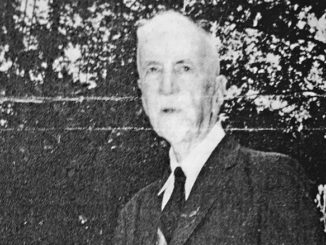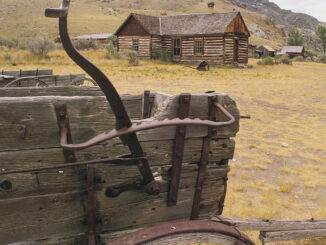
Downsizing is a familiar concept, a handy practice, or a dreaded activity depending on the circumstances of the tasks to be addressed. It can be a major task, a well-planned adventure, or simply a daily practice. Two-year-old Johnny is preparing to visit his grandparents for an extended visit. What should he leave behind, what toys to take, what will he miss the most? The recent high school graduate plans for her life in a dorm room. What she chooses to take will define herself in her new setting. The agent is moving up to his new office on the executive floor. Does he take all his collectives with him? The grandparents live a simpler lifestyle in the large family home. They need to downsize. Daily one sees the need to take action to ease the extra baggage by some form of downsizing.
Reducing one’s possessions to essentials vs memory items is no easy task. Usually, it involves making quick decisions without emotions to become sidetracked. But often we fail. Like the little cedar chest that sat for years on grandmother’s dresser. It was a miniature “hope chest” given to high school graduates and one can’t resist exploring its contents. A coat button, several coins with early 1900 dates, a note that simply reads, “Never forget,” an army sergeant’s stripes, a baby’s ring, a cigar smoker’s tool. The list of items goes on and it’s goodbye to downsizing today and hello to speculating.
A deep tray on the back of the desk is this writer’s chest full of snippets of ideas and facts collected over the past 20 years. It contains totally unrelated items that are like flavor bits to routine facts. It is time to downsize the tray, so here goes! First drawing from the midst of the pile is about crops.
During the second half of the 1800s, the main occupation of citizens was farming. Warren County attributed the good soil, the climate, and the efforts of its citizens for making Warren County the most agricultural haven in this part of the state. Naturally, awards were given by the state in recognition of outstanding farm endeavors. A 13-year-old young man from the Rockfield area won the state award for the best acre of corn. He raised 148 bushels of corn on one acre, thus winning the State Champion Corn Grower Award. Young Lester Bryant was awarded a trip to Washington, D.C. in recognition. Unfortunately, Lester was not familiar with the modern city’s gas lighting existing in his hotel room. When he went to sleep, he blew out the flame but did not turn the valve on the fixture and he was asphyxiated.
Next selection from near the bottom of the pile happens to be a picture of two African Americans. No labels, no identification, no clues from the background. They are not dressed as typical slaves, more like a working uniform. Perhaps they are part of the staff of Morehead Hotel. Or maybe simply free citizens. The 1810 census indicated that of Warren County’s 11,937 residents, 1498 were slaves and 17 were “free persons of color.” Abraham Vaugh is an example of an African American enumerated. He and his family are listed among the taxpayers since 1797. They settled on a claim of 200 acres of land “in a grove” on the north side of the Big Barren River where they remained till after the death of Abraham in 1837. Numerous taxpayers’ records, birth, death, and marriage records of the family were part of the county’s collections.
Another item from the downsizing stack involves The Midnight Spy, a local four-page newspaper appearing suddenly in the spring of 1850. The writers, publisher, and distributer of the publication remained unknown to the residents who found the pages on their doorstep one morning. The paper was full of innuendos, titillating stories of local residents… not by names, just inkling enough clues to make people wonder. “A certain doctor whose cranium presents a flaming exterior,” or “Local men who had forgotten the rules of chivalry and considered it a virtue to ‘sneer’ at women.” Questions about the late-night serenading of certain young ladies and not other ladies were asked by the writers. A half column appeared in the second publishing (and the last one) about women’s fashions: “The low-cut, short-sleeve dresses not only showed off full busts but also dirty arms.” No one was sure if the scandal newspaper was published to produce laughter or contempt but the rather vulgar nature of the second newsletter seemed to have given a halt to the existence of The Midnight Spy.
Thumbing through the minutes of the meetings of the trustees in the early years of the growing community of Bowling Green gives one a close-up view of the struggles the founders faced. Their resolutions and ordinances reflect the day-to-day task the trustees faced in trying to find simple solutions to their problems. When cholera existed, to protect the spread of the disease, the following was approved: Anyone over 21 infected with a contagious disease (smallpox, cholera) who stayed in town longer than 15 minutes will be fined $10. To protect the city source of water: Anyone who washed clothes or watered a horse or other beast in the city well (on the public square) could be fined $1. Anyone throwing manure, filth, or obstructions of any kind in “Spring Valley” was fined $3 per offense. Simple solutions to day-to-day problems. Here’s one that sounds familiar to Bowling Green today: Any resident who allowed his/her dog to run at large could be fined 15 shillings per dog. These over 200-year-old laws and resolutions (found in 1820s and 1830s records) certainly help us to appreciate the guidance of our founding ancestors.
There is a wealth of small snippets of history like the ones above to enjoy perhaps again with those of us who love the history of our community. They color our past and inspire new ideas. Surely there is a lot of joy in taking part in a downsizing endeavor. Renewing former events that brought joy and exciting moments in our younger years is worth time spent. Perhaps we experience a moment when we felt foolish or even embarrassed knowing how little we knew at the young age but how gallant we thought we were. Yes, downsizing experiences can give us new hope and circumstances, but the effort can help preserve the core of our being. Happy Days!
-by Mary Alice Oliver
About the Author: Mary Alice Oliver is a Bowling Green native who is a 1950 graduate of Bowling Green High School. She retired from Warren County Schools after 40 years in education. Visiting familiar sites, researching historical records and sharing memories with friends are her passions.






